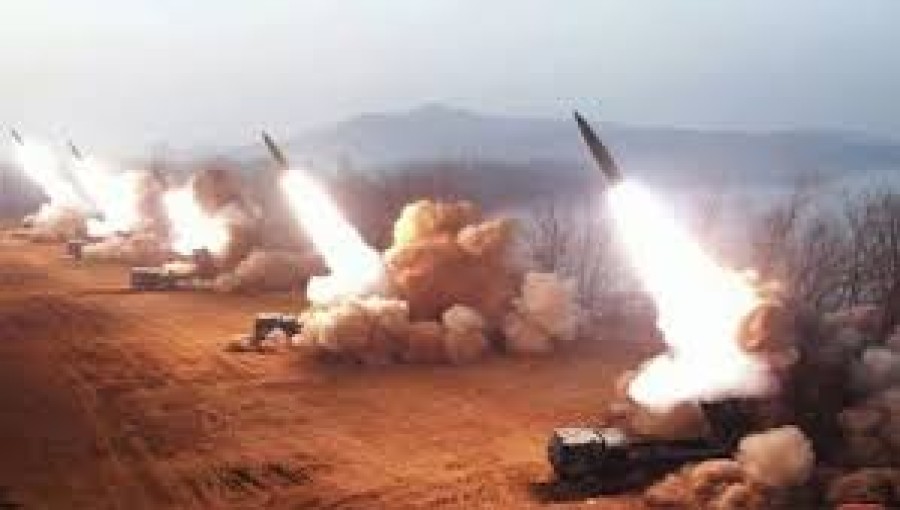
Photo: Collected
Seoul Condemns North Korea's Missile Launches as Provocation Threatening Regional Stability
SEOUL, Sep 12 (V7N) - North Korea launched several short-range ballistic missiles into the waters east of the Korean Peninsula on Thursday, according to South Korea's military. This marks Pyongyang's first weapons test since early July.
North Korean leader Kim Jong Un's regime has carried out numerous missile tests this year. Analysts suggest that this could be linked to reports of North Korea allegedly supplying weapons to Russia for its war in Ukraine, although Pyongyang has denied such accusations, stating there have been no violations of international sanctions.
Despite the lack of diplomacy, tensions have been rising, with North Korea labeling South Korea as its "main enemy" earlier this year and moving nuclear-capable weapons closer to the border.
South Korea's Joint Chiefs of Staff confirmed that they detected multiple short-range ballistic missiles launched from Pyongyang at around 7:10 a.m. local time (2210 GMT Wednesday), flying approximately 360 kilometers (220 miles) before landing in the East Sea, also known as the Sea of Japan. Seoul’s military responded quickly, tracking and monitoring the situation while sharing information with allies Japan and the United States.
In a statement, the Joint Chiefs condemned the missile launch as "a clear provocation that threatens peace and stability on the Korean Peninsula."
Japan’s defense ministry also confirmed the missile launch, with Prime Minister Fumio Kishida stating that Japan had already lodged a protest against North Korea.
This is North Korea's first missile test since July 1, following its recent celebration of the country’s founding regime anniversary on September 9. The regime often stages missile tests during this period, including a significant nuclear test on the same date in 2016.
Flooding May Have Halted Recent Activity
The pause in missile tests in recent months may be due to widespread flooding that has severely affected parts of North Korea. Park Won-gon, a professor at Ewha Womans University, told AFP that even during the joint military exercises conducted by South Korea and the U.S. in August, which typically provoke a response from Pyongyang, no missile launches occurred.
"This launch could signal a return to North Korea’s usual pattern," Park suggested, adding that the regime had pledged satellite launches this year but failed to deliver, potentially hinting that an intercontinental ballistic missile (ICBM) launch could follow soon.
North Korea has been focusing on testing tactical missiles designed to carry nuclear warheads capable of targeting South Korea, Park said.
Last month, North Korea reported that torrential rains in late July resulted in an unspecified number of casualties, submerged homes, and destroyed farmland near its northern regions bordering China.
In addition, satellite imagery from 38 North, a North Korean analysis project run by the Stimson Center think tank, revealed that North Korea’s main nuclear test site was damaged by flooding, with several bridges and command facilities washed away.
Strained Relations with the South
Relations between North and South Korea have hit a low point, with North Korea recently deploying 250 ballistic missile launchers along its southern border. The regime has also launched balloons carrying trash into South Korea, conducting a five-day campaign of bombardment last week.
In response, Seoul has suspended a military agreement aimed at reducing tensions and resumed loudspeaker propaganda broadcasts along the border.
North Korea has been strengthening its military ties with Moscow, and some analysts believe Pyongyang may be ramping up production of artillery and cruise missiles for potential delivery to Russia for use in the conflict in Ukraine.
END/WDN/RH/

Comment: